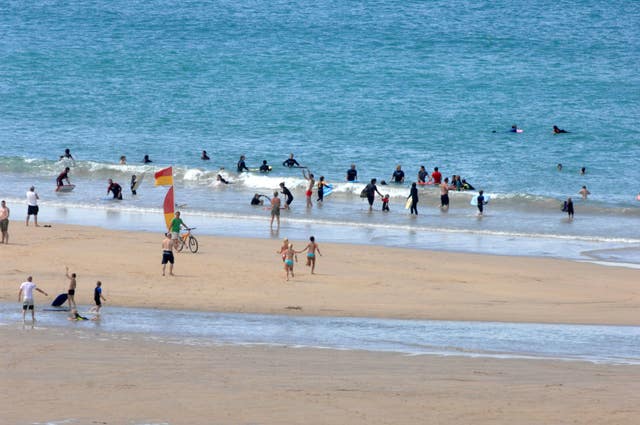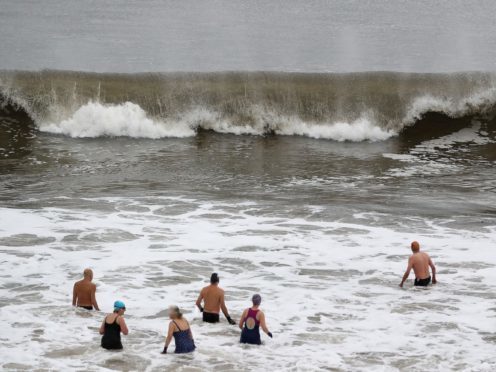People who swim, bathe or take part in water sports in the sea are more at risk of stomach bugs, ear aches and other illness, a study has found.
The research is the first systematic review to examine evidence on whether spending time in the sea is associated with an increased risk of reporting a variety of ailments.
Results showed that sea bathing doubled the odds of reporting general ear illnesses, and the odds of reporting earache specifically rose by 77%.
There was also a 29% increase in reporting gastrointestinal illnesses.
Is it safe to go back into the water? Read our systematic review to find out! https://t.co/i54A3G8vrE By @OxonAndrew from @CEHScienceNews and @Ruth_Garside Obi Ukoumunne, @WHGaze of @ExeterMed @ECEHH #openaccess #beach
— Anne Leonard (@dr_anne_leonard) February 27, 2018
Dr Anne Leonard, of the University of Exeter Medical School, said: “In high-income countries like the UK, there is a perception that there is little risk to health of spending time in the sea.
“However, our paper shows that spending time in the sea does increase the probability of developing illnesses, such as ear ailments and problems involving the digestive system, such as stomach ache and diarrhoea.
“We think that this indicates that pollution is still an issue affecting swimmers in some of the world’s richest countries.”
The researchers say that, despite an improvement in water quality in recent years, seawater is still polluted from sources including industrial waste, sewage and run-off from farmland.

They examined more than 6,000 studies and found just 19 that met the strict criteria for inclusion in their analysis. Many of these studies involved thousands of participants.
The studies researched any links between sea bathing and the incidence of illness in countries including the US, UK, Australia, New Zealand, Denmark and Norway.
Dr Will Gaze, of the University of Exeter Medical School, said: “We don’t want to deter people from going into the sea, which has many health benefits such as improving physical fitness, well-being and connecting with nature.
“However, it is important that people are aware of the risks so they can make informed decisions.
“Although most people will recover from infections with no medical treatment, they can prove more serious for vulnerable people, such as the very old or very young, or those with pre-existing health conditions.
“We have come a long way in terms of cleaning up our waters, but our evidence shows there is still work to be done. We hope this research will contribute to further efforts to clean up our coastal waters.”
The paper is published in the International Journal of Epidemiology.
